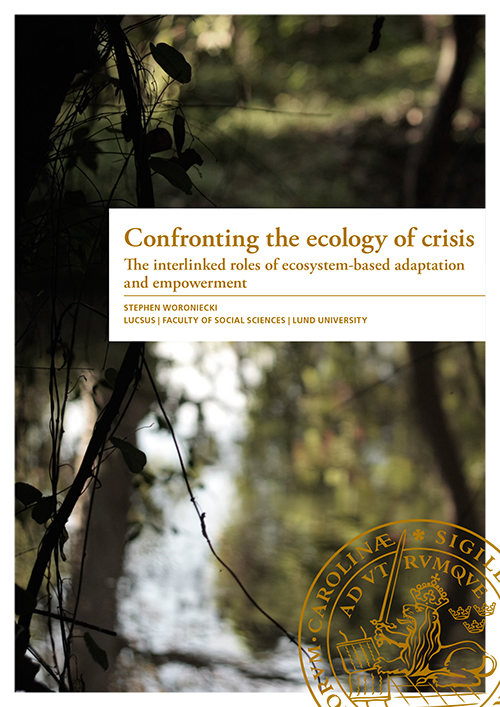In a warming and highly unequal world, people are searching for integrated, holistic solutions that can move beyond the siloes of social or environmental sustainability. In this context, there are tendencies, even in research, to assume that green is good, and that green is fair. Against this backdrop, nature based solutions to climate change have risen to prominence as a go to approach for delivery of win-win solutions when it comes to social change and empowerment of vulnerable groups. In this thesis I focus on Nature-based Solutions to Climate Change Adaptation in Sri Lanka. Using a power-based analysis, I explore the potential of such solutions to facilitate empowerment of the most climate-vulnerable groups. I locate some promises and pitfalls of these solutions, and make some suggestions how they can better acknowledge social relations and processes.
Stephen Woroniecki is an interdisciplinary scientist interested in understanding the social and the natural dimensions of climate change, biodiversity loss, and sustainability. He has a background in ecology, and conservation, and resilience, having studied in Edinburgh, Stockholm, and Lund.
LUND UNIVERSITY CENTRE OF EXCELLENCE FOR INTEGRATION OF SOCIAL AND NATURAL DIMENSIONS OF SUSTAINABILITY (LUCID)
LUCID was a Linnaeus Centre at Lund University. It was funded by the Swedish Research Council Formas, comprised six disciplines from three faculties and was coordinated by LUCSUS as a faculty independent research centre. The research aimed at the integration of social and natural dimensions of sustainability in the context of grand sustainability challenges such as climate change, biodiversity loss, water scarcity and land use change.

